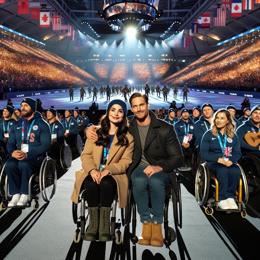Image created by AI
The Complex Battle Over Broadcast Rights for South Africa's National Teams
In the ongoing saga to make South Africa’s beloved national sports accessible to all, Minister of Sport Gayton McKenzie has stepped up with a public promise. He wants major events featuring teams like Bafana Bafana and the Springboks to be available on SABC or other free-to-air channels. However, the path to this seemingly simple goal is fraught with complexity and longstanding commercial entanglements with pay-TV giant SuperSport.
Since SuperSport holds robust financial clout, they secure exclusive rights which often leaves the majority of South Africans in the dark, unable to afford premium packages. McKenzie's intentions might be noble, but they skate over the icy surface of the issue. Bold public statements aside, what the situation demands is thorough, behind-the-scenes conversations and negotiations with all involved entities including the MultiChoice Group, SABC, eMedia, and Icasa, the regulator for the South African communications sector.
Despite the combative rhetoric, history has shown that predecessors have battled and failed to disentangle these issues due the lucrative nature of contractual obligations held by federations with SuperSport. For example, the much-anticipated rugby matches of The Springboks are often confined behind the paywall, with upcoming tests also under threat of restriction unless there is a change in the current broadcasting dynamics.
The intermittent co-operation from SuperSport has, in the past, allowed for sub-licensing agreements during globally captivating fixtures like World Cups but at a steep price that the SABC has struggled to meet. The SABC's limited airing of Premier Soccer League matches also embodies this chokehold that SuperSport maintains over popular sports content due to pre-existing contracts.
In 2019, Icasa's public hearings highlighted an uncomfortable truth: many sports federations depend heavily on the revenues from broadcasting rights, arguing that their survival would be at risk if these rights were freely available. The dilemma is also epitomized by PSL chair Irvin Khoza's stark warning of financial impoverishment if the league was hampered from selling these rights exclusively.
Gayton McKenzie's task is formidable. Shifting from vocal promises to actual policy-making will require a delicate balance of realpolitik, diplomacy, and possibly finding novel funding solutions to buy sub-licensing from SuperSport. Fans await a resolution that honors their right to watch their national heroes without sacrificing the economic engines that help sustain the sports they so dearly love.










